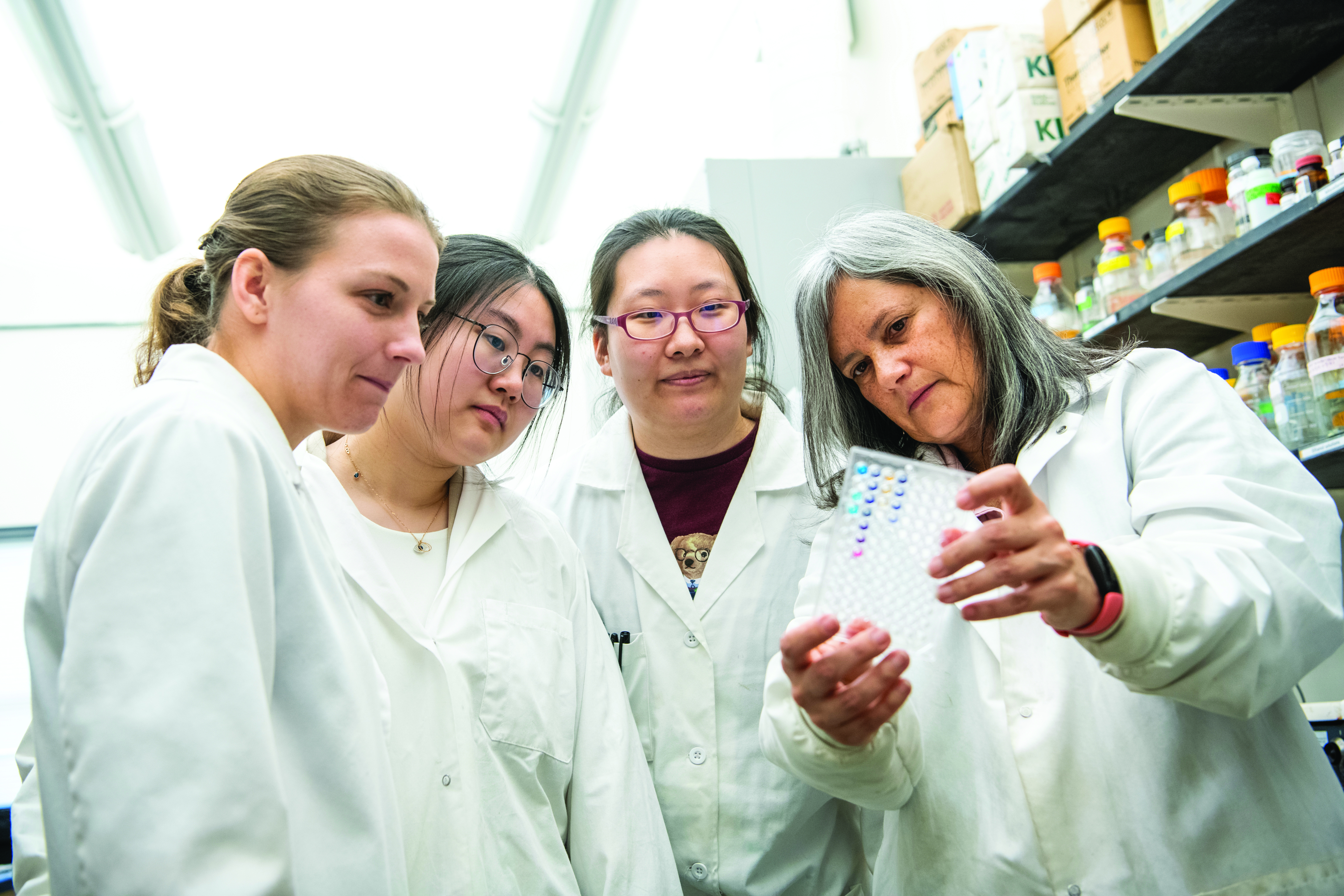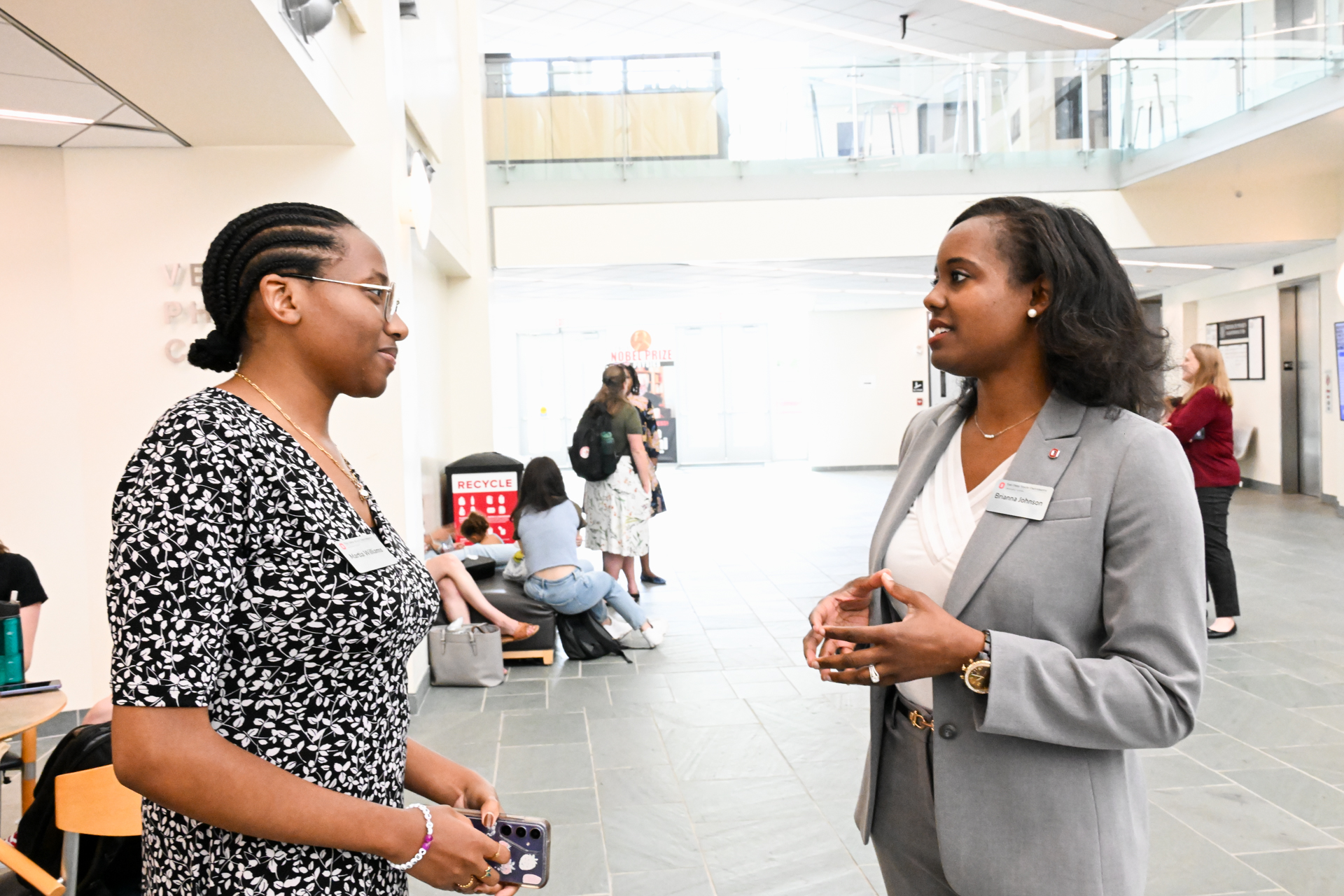Resources for Faculty or Postdoc Mentors
Mentors are instrumental in advancing the academic, career, and personal development of their mentees. The Graduate School has curated resources, templates, and tools to equip mentors with the support necessary for effective mentorship.
Creating a Mentoring Plan
A mentoring plan is drafted by the faculty (or postdoc) mentor; is unique to the needs of each trainee, research group, and project; and is updated regularly.
Mentoring Plan Document Details
- Formalizes the relationship between a mentor and a mentee
- Provides structure for mentorship and performance management and to assess progress
- Promotes a healthy and productive work environment
- Clearly delineates the roles and responsibilities of the mentor and mentee pertaining to performance expectations, engagement, and professional and career development
Things to consider when drafting a mentoring plan
What is your mentorship philosophy? How many trainees? What work will they perform? Will they be co-mentored? What training and development opportunities will you provide the trainees? What resources and support will be available to your trainees? How will you assess trainee success? How frequently will the mentoring plan be updated?
Specific Criteria for NSF Mentoring Plans
A “Mentoring Plan”, not to exceed one page, must be submitted for each proposal submitted to the NSF that includes funding to support postdoctoral scholars or graduate students (trainees) within the ‘supplementary documentation’ section of the submission. This document should describe the mentoring activities that will be provided to all potential trainees supported by the project, regardless of whether they reside at the submitting organization, any sub-contracted organization, or at any organization participating in a simultaneously submitted collaborative proposal. Please note that separate plans are not required for postdoctoral scholars or graduate students. However, you may specify in the document how different components of the mentoring program will be enacted for the two types of trainees. The mentoring activities provided to trainees supported on the project will be evaluated under the Broader Impacts review criterion. See PAPPG Chapter. II D.2.i(1) for the most current information.
The goal of the Mentoring Plan is to outline the skills, knowledge, and experiences that will be provided to prepare trainees to thrive in their chosen career pathway. Examples of mentoring activities include but are not limited to: career counseling; grant writing and proposal development; developing scholarly publications and presentations; experiences that improve teaching and mentoring skills; training on effective interdisciplinary collaboration with researchers from diverse backgrounds and disciplines (e.g., team science); and training in the responsible conduct of research and professional practice.
Sample Mentor Plan Text
Example Mentoring Plan
not to exceed one page in length
Note: This document is meant to only serve as an example of what a mentoring plan should look like for extramural submissions to NSF. Each plan should be tailored to the proposed project, the department’s goals, and the needs of the postdoctoral researcher(s) and/or graduate student(s). Proposing PIs are advised that the mentoring plan must not be used to circumvent the Project Description’s 15-page limit.
Replace all text within <> with specific information about your mentor plan.
Orientation
Orientation will include in-depth conversations between <PI name(s)> and the <postdoc(s) and/or <graduate student(s)>. To assist in the expectation setting process, <trainee type(s)> and PIs are encouraged to complete an Individual Development Plan (IDP) for each <trainee type(s)> and Mentor as well as annual review meetings. OSU’s <Office of Postdoctoral Affairs offers a bi-monthly New Postdoc Orientation program> <Graduate School offers a webinar to graduate students> that includes guidance on drafting IDPs. Ohio State’s
Career Counseling/Services
Career Counseling/Services will be provided in part by <PI name>. OSU <Postdocs and/or graduate students> also have access to individual career counseling appointments with <for postdocs: the OSU Office of Postdoctoral Affairs, Buckeye Careers, an OSU-wide career services support unit, and (college name’s career services group, if it exists)>. <This/These> office(s) also offer(s) workshops on career and professional development. <for graduate students> <for grad students: Grad Students have access to career counseling, events, and networking through designated University Offices.>
Training in the Preparation of Grant Proposals
Training in the Preparation of Grant Proposals will be gained by direct involvement in proposals prepared by <PI name> to learn best practices (e.g., identification of key research questions; describing objectives, approach and rationale; and constructing work plans, timeline, and budgets. <Postdocs and/or graduate students> will also have access to grant writing toolkits and trainings provided to early career scientists by designated University Offices.
Publications and Presentations
Publications and Presentations are expected outcomes of the work supported by this grant. These will be prepared under the direction of <PI name> and in collaboration with researchers at participating organizations. <Postdocs and/or graduate students> will receive guidance and training in the preparation of manuscripts for scientific journals and presentations at conferences. Additionally, <postdocs and/or graduate students> will have access to professional development offerings from designated University Offices. To assist in research dissemination-related travel, Postdocs are eligible to apply for Professional Development and Travel Awards from the OSU Postdoc Association; graduate students are eligible for Ray Travel Awards managed by the OSU Council of Grad Students.
Teaching and Mentoring
Teaching and Mentoring will be developed in the context of regular meetings within their research groups during which <grad students and/or postdocs> describe their work to colleagues and assist each other with solutions to challenging research problems, often resulting in cross-fertilization of ideas.
Instruction in Responsible Professional Practices
Instruction in Responsible Professional Practices will be provided on a regular basis in the context of the research work and will include fundamentals of the scientific method, laboratory safety, and other standards of professional practice. In addition, <postdocs and/or grad students> will be encouraged to affiliate with one or more professional societies in their chosen field. <Postdocs and/or grad students> will also have access to GRADSCH 8000: Responsible Conduct of Research, a course offered annually by the Graduate School that adheres to NSF and NIH RCR requirements and expectations pertaining to meeting cadence, content, case studies and readings. · Effective Collaboration Skills, with a focus on collaborations with researchers from diverse backgrounds and disciplinary areas. <for postdocs: Postdocs will have access to team science training workshops offered annually by the OSU Office of Postdoctoral Affairs.>
Importance of Mentoring for Extramural Awards
- Mentoring and Individual Development Plans. NSF guidance from Cornell University
- The consensus from the NIH, NSF, Association of American Medical Colleges, Federation of American Societies for Experimental Biology, and other organizations is that ongoing training for (soft) skills is essential to a research-oriented scientific career.
- Source: Nancy Schwartz, NPA Introduces Core Competencies, The POSTDOCket, Summer 2010
- There is a national consensus that training for graduate students and postdocs was failing to prepare them for next steps in their professional careers. Leaders at NIH, NSF, and the Association of American Medical Colleges have determined that mentors do not spend enough time training for the soft skills needed for many professional careers, but specifically in research-oriented scientific careers.
- Historically, many in the research community did not think these sorts of skills were necessary to be successful. But they are, especially in the current day when team-based, interdisciplinary science that converges disciplines is the new norm. Figuring out how to effectively communicate and work with people across multiple disciplines are critical skills to ensure mentees’ future success, not just in academia but also in industry settings.
Individualized Development Plans (IDP)
An important part of mentorship and overall professional development is the creation of a personalized strategic plan to realize scholarship-related, career-related, and/or professional development objectives.
Ohio State IDP tools
- Beyond the Professoriate. Choose OSU and use your name.# to login.
- myIDP by AAAS. For STEM disciplines.
- ImaginePhD. For social and behavioral sciences, arts, and humanities disciplines.
- The Versatile PhD. For humanities, social and behavioral sciences, and STEM disciplines.
- iBiology’s Career Planning for Early Career Scientists(opens in new window) is a free, self-paced, online course includes nine short videos with tips for career planning.

Mentor Toolkit
Are you a mentor? The Graduate School has provided tips and resources specifically for mentoring graduate student.

Other Mentorship Resources
Need additional resources such as resources across campus? The Graduate School has brought together several resources to help support both mentors and mentees.

Ohio State Mentoring Initiative
The Graduate School is fully invested in supporting mentor and mentee development at Ohio State. Learn more and find general resources on our Mentorship page.